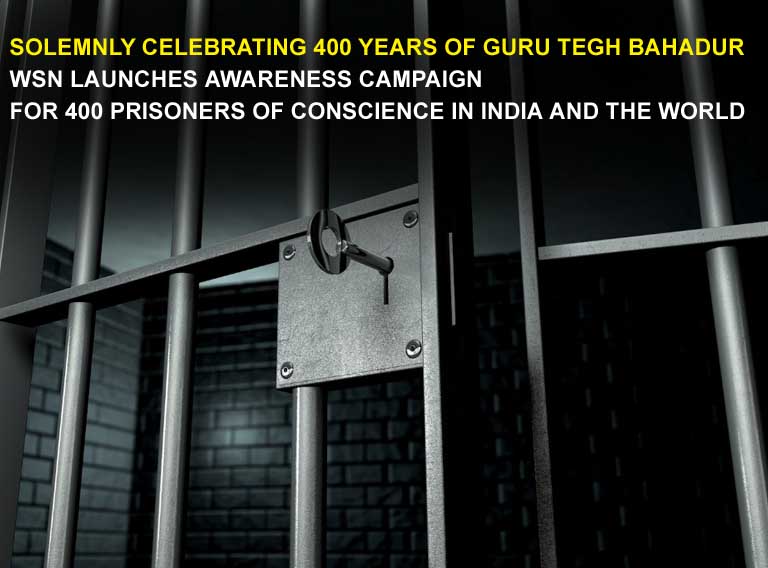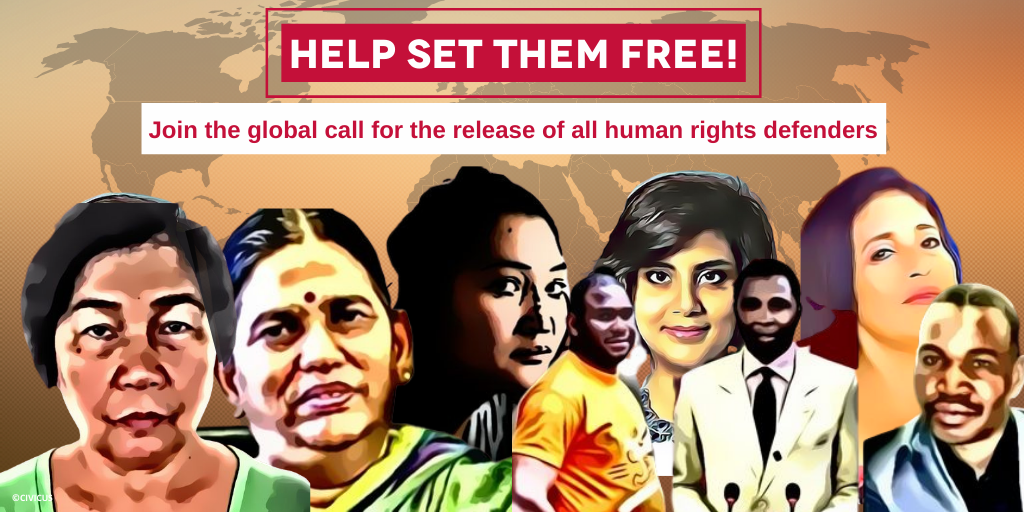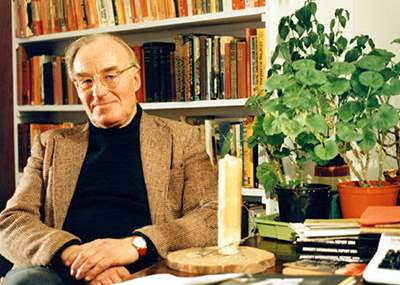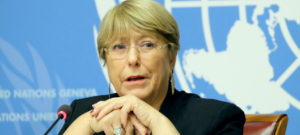WSN campaigns for 400 Prisoners of Conscience on Guru Tegh Bahadur’s 400th birth anniversary
On 1 May 2021, The World Sikh News decided to take up the cause of 400 Prisoners of Conscience as a commitment on the occasion of the 400th Birth anniversary of Guru Tegh Bahadur. India’s Supreme court, UN Secretary-General and the UN Human Rights Commissioner have asked countries to release prisoners to save them from the severity of the Covid19 pandemic, yet countries are shamelessly unrelenting. In association with activists from across South Asia and to supplement the amazing work of human rights defenders, WSN editor Jagmohan Singh launches this Campaign for creating awareness and providing a voice to Prisoners of Conscience.
![On 1 May 2021, The World Sikh News decided to take up the cause of 400 Prisoners of Conscience as a commitment on the occasion of the 400th Birth anniversary of Guru Tegh Bahadur. India’s Supreme court, UN Secretary-General and the UN Human Rights Commissioner have asked countries to release prisoners to save them from the severity of the Covid19 pandemic, yet countries are shamelessly unrelenting. In association with activists from across South Asia and to supplement the amazing work […]](https://www.theworldsikhnews.com/wp-content/uploads/2021/06/Prisoners-in-conscience-360x266.jpg)
INDIGENUOUS RIGHTS ACTIVIST, 84-YEAR-OLD Jesuit priest Father Stan Swamy has contracted Covid19 in Taloja Central Jail, Mumbai and despite a personal appearance in the Bombay High Court, during which his body afflicted with Parkinson’s was failing him, he could not get bail. Lawyer and activist Sudha Bharadwaj, afflicted with many ailments has been denied bail, even on medical grounds, not to mention that her trial has not even started after nearly three years of detention. There are 15 more in the same case in the same prison. There are many unbeknownst in other prisons of India and the list is virtually unending. Like India, every country of South Asia has a dubious track record of having scores of Prisoners of Conscience.
Four centuries ago, though not physically incarcerated in prison, the Kashmiri Pandits were Prisoners of Conscience of the autocratic and inhuman orders of the Mughal emperor of India- Aurangzeb, as he had issued a diktat that non-Muslims must convert to Islam or face death.

Led by Pandit Kirpa Ram, the Kashmiri Brahmins had come to the Darbar of the Ninth Master Guru Tegh Bahadur at Anandpur Sahib, who after a patient hearing, offered to support the cause of Right to Freedom of Religion. The Kashmiri Brahmins told the courtiers of Aurangzeb that “if Guru Tegh Bahadur converts to Islam, they too will.” Guru Sahib was arrested and brought to Delhi and asked to accept Islam or perform miracles or embrace death. In the face of the death of his three associates Bhai Dyal Das, Bhai Mati Das and Bhai Sati Das, meant to overawe him, the Guru chose death. He was beheaded where stands tall Gurdwara Sisganj Sahib today, in the heart of Old Delhi.

From 1 May onwards this year, the Sikh world is celebrating the fourth Centennial Birthday of Guru Tegh Bahadur and all kinds of social, intellectual and religious celebrations are happening all around the world, albeit on a small scale due to the Covid19 pandemic.

The world in general, South Asia in particular and India specifically is facing a religio-political situation similar to those times of the Mughal emperor. While there is no strict written or verbal diktat to convert to a particular religion, serious, sinister, covert and overt operations are underway to convert the population of India to one political ideology, one language, one religion, one water, one landscape, one election and one flag.
Nepal, Pakistan, Myanmar, Sri Lanka, Maldives, Bangladesh, Afghanistan and Bhutan -all have similar tales of pain, persecution and foisting of a singular agenda against the rights and will of the people.
In pursuance of this design, in the South Asian region, including India, there are hundreds of prisoners of conscience, many of whom are detained under archaic laws, many who are in the last years of their lives, but the government continues to detain them under preventive detention laws and an insensitive judiciary goes only by the book.
 A 1961 letter, published in The Observer, London, served as a catalyst for the establishment of the international human rights organization Amnesty International. British lawyer and activist Peter Benenson coined the term Prisoner of Conscience to describe two Portuguese students who had been sentenced to seven-year prison terms for their alleged “crime”—making a simple toast to freedom in spite of the dictatorial government of António de Oliveira Salazar that was in power at the time.
A 1961 letter, published in The Observer, London, served as a catalyst for the establishment of the international human rights organization Amnesty International. British lawyer and activist Peter Benenson coined the term Prisoner of Conscience to describe two Portuguese students who had been sentenced to seven-year prison terms for their alleged “crime”—making a simple toast to freedom in spite of the dictatorial government of António de Oliveira Salazar that was in power at the time.

Following the overwhelming response to the letter, published worldwide, Benenson founded Amnesty International. The founders of Amnesty International proclaimed that Amnesty would campaign for those who were “imprisoned, tortured or executed because [their] opinions or religion are unacceptable to [their] government”.
Professor of Constitutional and European law at University College London Ronan McCrea, writing in The Irish Times early this year, suggests that by broadening its arena of work from the release of political prisoners to upholding the whole spectrum of human rights, “Amnesty has lost focus on rights of prisoners of conscience. ”
“A person who has been imprisoned for one’s conscientiously held social, religious or political beliefs or dissidence against a government or because one belongs to a particular race, religion, caste, region, gender and who has not advocated or indulged in violence is a Prisoner of Conscience.”
 Dwelling on the dilution of the focus of Amnesty International, the author notes that earlier, “They used to argue that it did not matter what the substance of a person’s views was, the important thing was that people should not be imprisoned for peacefully holding and expressing them.”
Dwelling on the dilution of the focus of Amnesty International, the author notes that earlier, “They used to argue that it did not matter what the substance of a person’s views was, the important thing was that people should not be imprisoned for peacefully holding and expressing them.”
It is this view that would be the focus of WSN work for Prisoners of Conscience.
There is no mention of the term Prisoners of Conscience in any of the UN declarations, treaties and conventions. For our campaign, we would say, “A person who has been imprisoned for one’s conscientiously held social, religious or political beliefs or dissidence against a government or because one belongs to a particular race, religion, caste, region, gender and who has not advocated or indulged in violence is a Prisoner of Conscience.”
The United States Commission for International Religious Freedom has created the concept of Religious Prisoners of Conscience. It defines them as “individuals who are imprisoned, detained, under house arrest, or disappeared for their religious beliefs, non-belief, identity, activity and/or advocacy for Freedom of Religious Belief or related rights, provided that they have not used or advocated violence”.
 Last year, when the pandemic broke out, the UN High Commissioner for Human Rights -Michelle Bachelet, made a clarion call to countries for the release of prisoners from jails. She said, “Governments are facing huge demands on resources in this crisis and are having to make difficult decisions. But I urge them not to forget those behind bars, or those confined in places such as closed mental health facilities, nursing homes and orphanages because the consequences of neglecting them are potentially catastrophic.”
Last year, when the pandemic broke out, the UN High Commissioner for Human Rights -Michelle Bachelet, made a clarion call to countries for the release of prisoners from jails. She said, “Governments are facing huge demands on resources in this crisis and are having to make difficult decisions. But I urge them not to forget those behind bars, or those confined in places such as closed mental health facilities, nursing homes and orphanages because the consequences of neglecting them are potentially catastrophic.”
Last year, on 18 July Nelson Mandela Day, 197 organisations from across the world, in an open letter to world leaders called for “Immediate and unconditional release of all human rights defenders and prisoners of conscience in jail solely for their peaceful human rights activities, and stop all judicial persecution against them.”
We all believe that there is a need for further strengthening the voice of human rights defenders, civil liberties activists, political dissidents by identifying and garnering support for 400 Prisoners of Conscience, which would be a befitting way to celebrate the 400th Birth anniversary of the Guru and what he stood for.
The list of Prisoners of Conscience is long and winding and will soon find a place on the web pages of The World Sikh News. An advisory forum of lawyers and human rights activists has been constituted.

We all believe that there is a need for further strengthening the voice of human rights defenders, civil liberties activists, political dissidents by identifying and garnering support for 400 Prisoners of Conscience, which would be a befitting way to celebrate the 400th Birth anniversary of the Guru and what he stood for.
In the true letter and spirit of the teachings of Guru Tegh Bahadur, we are committed to a peaceful world order in a spirit of mutual coexistence, inclusion, compassion and empathy not unilateralism, exclusion, barbarism and hatred.

2 thoughts on “WSN campaigns for 400 Prisoners of Conscience on Guru Tegh Bahadur’s 400th birth anniversary”